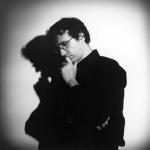
From 24 to 30 October the Concert Hall of the Mariinsky Theatre will be hosting the II International Organ Festival featuring acclaimed European musicians. An interview with one festival participant, the virtuoso improviser and world renowned composer Thierry Escaich, is now available.
– What does the organ mean to you? Why did you opt for it of all musical instruments?
Over the course of recent centuries the organ has been closely connected with composition. It is a polyphonic instrument with its tremendous richness of colours and incredibly refined nuances – the more so as it is performed by just one person. And so it is entirely logical that for me (and for my great predecessors including Mendelssohn, Franck, Vierne and Messiaen) the organ came to be a kind of unique laboratory where the composer can study the architecture of sound before approaching the composition of orchestral music or assimilating other instruments. One dazzling example of such comes with Bruckner and his symphonies that were performed on the organ.
– Which composer is closest to you in spirit? And why?
However paradoxical it may sound, several composers that are very close to me in terms of spirit never ever played the organ – or at least they dedicated little attention to the instrument. Significantly, I have been inspired by Béla Bartók with his Beethoven-like sense of form, rhythmic fugues and research into folk music of various countries. I also really value the incredible melodic virtuosity of Tchaikovsky and the Impressionistic orchestral colours of Ravel. It is interesting that in truly discovering these composers it helped me select my own organ performing style. And so, when I improvise, these composers become my guides, they make me go beyond the confines of the instrument and make maximum use of its possibilities in order not to destroy the musical fabric that inspires me (regardless of the fact that it may have nothing in common with the organ itself).
– You are known for your improvisations. Could you please tell us something about their charms and complexities?
Improvisation is the creation of music here and now. But that doesn’t mean that the public’s fingers are open to jests and merriment. Quite the reverse. In this genre you have to think several steps in advance, you have to create harmonies and rhythms in a few milliseconds before your fingers perform it; you have to form the structure of musical speech as if it were in words – and, at the same time, you have to observe impulsive and feverish bursts that characterise any improvisation.
The true art of improvisation lies in not losing the freedom of expression even when using complex and ideally refined musical language.
– What is the meaning of creativity for you?
We are all creators: when working with sound material (albeit background, melodies or harmonic colour etc.) we see it through the prism of our own identity and we convey this to subsequent generations in a new format.
We don’t have to strive to be “new”: any true creative beginning starts with powerful individuality combined with total and absolute mastery in all fields of composition. Johann Sebastian Bach, whose compositions open the current Organ Festival, never negated the music of the past. He merely transformed it, uniting different styles and trends. Thus emerged the new concept of the fugue – more concertante, at times even dance-like, with an ideal balance of harmony and counterpoint and a new approach to the instrument... And all of this was attained via stormy and comet-like inspiration.
– Has your attitude to your work changed with time? And, if yes, how so?
Of course – in my first works I strove first and foremost for musical expressionism, trying to achieve maximal expression of sound (a fine example is my Organ Concerto No 1 which has been performed for several seasons at the Concert Hall of the Mariinsky Theatre), while in more recent works I have essentially focussed on the colour of sound and its movements over the general orchestral fabric. One example of my new creative style is my symphonic poem for organ and orchestra Barque solaire, which I had the honour to perform at the same venue three years ago under the baton of Valery Gergiev.
– What can we expect from the Organ Festival this year? Are there any surprises to delight the public?
Of course, there will be performances of works by undoubted classics such as Bach, Mendelssohn and Franck – meaning all three organist-composers who began with the organ and only subsequently composed their timeless orchestral and vocal masterpieces. But we will also hear the organ-orchestra, or arrangements for organ of music by highly diverse composers, from Ravel and Strauss to Messiaen. At these recitals one understands the precise rhythm of the instrument as well as its rich scale of musical colours... Finally there will be contemporary organ music at the festival, with works by classical contemporary composers including Mikael Tariverdiev and Rolande Falcinelli (who, apropos, was one of the greatest French tutors of the 20th century), and even jazz compositions which will demonstrate that the organ is more than a mere church instrument but rather an accompanist to various elements of our lives. The performance of such varied music is thanks to the incredibly rich sound abilities afforded by the organ of Alfred Kern&Fils, on which all of the festival’s participants will perform.
And yet another significant event of the year: I will be performing an improvised accompaniment to a silent film – as in the early days of cinema. This project will be a memoir of the great tradition of the use of organs in cinemas, when the accompaniment to films was provided by such great composers as Saint-Saëns and Olivier Messiaen.
Speaking with Svetlana Nikitina